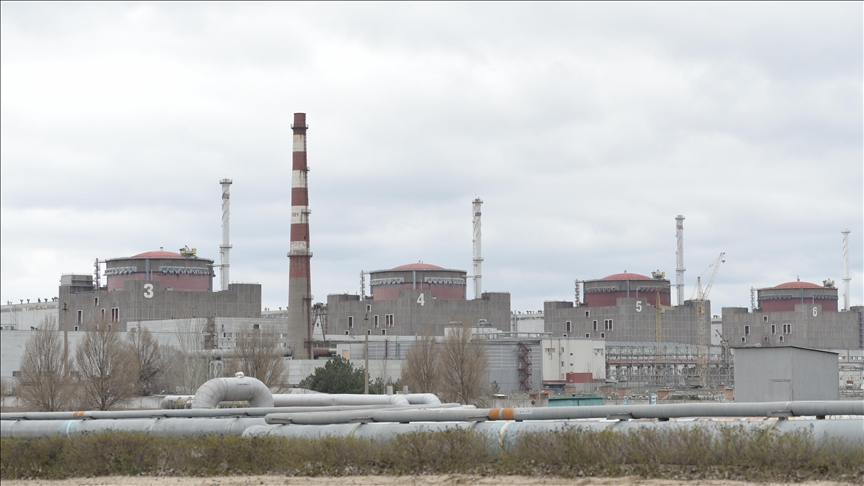See now, you are not reading what I wrote. Go back and read it again. I didn’t say they were mentioned. I said Cyrus and the Antichrist were mentioned. All humans are included in the NT and OT. OT because they either looked forward to Christ or worshipped idols. In the NT everyone is included after the Christ on the cross as either accepting him or denying him. This includes Muslims. The start date of Islam has little to do with that from a Christian perspective. People groups by and large are only broken out into Jews and Gentiles. Example: today we are in what is called the Age of the Gentiles, this will sunset soon enough and the veil will be lifted off of the eyes of the Jews and they will come to Christ.
Whether or not Muslims are mentioned specifically is about as relevant as whether or not Indians are mentioned. Gentiles be Gentiles.
ok, we're really getting off on a tangent now, so this is the last I'll say on it.
Just as you referred to Gog and Magog earlier, there is mention of many people groups in the Bible beyond just "Jew and Gentile" and these Biblical prophecies are totally relevant, or else they would not be discussed. In the beginning, immediately after the Flood, there is the Table of Nations in Genesis 10; many of these are mentioned again in the Bible, all the way to Revelation.
Gomer, Magog, Madai, Javan, Tubal, Meshech, and Tiras. Ashkenaz, Riphath, and Togarmah. Elishah, Tarshish, the Kittites, and the Rodanites. From these, the maritime peoples separated into their territories, according to their languages, by clans within their nations. Cush, Mizraim, Put, and Canaan. Seba, Havilah, Sabtah,b Raamah, and Sabteca. Sheba and Dedan. (Nimrod) Babylon, Erech, Accad, and Calneh, in the land of Shinar. Assyria, Nineveh, Rehoboth-Ir, Calah, 12and Resen, Mizraim was the father of the Ludites, the Anamites, the Lehabites, the Naphtuhites, 14the Pathrusites, the Casluhites (from whom the Philistines came), and the Caphtorites. Canaan was the father of Sidon his firstborn,g and of the Hittites, 16the Jebusites, the Amorites, the Girgashites, 17the Hivites, the Arkites, the Sinites, 18the Arvadites, the Zemarites, and the Hamathites. Elam, Asshur, Arphaxad, Lud, and Aram. Uz, Hul, Gether, and Mash. Eber. And Joktan was the father of Almodad, Sheleph, Hazarmaveth, Jerah, 27Hadoram, Uzal, Diklah, 28Obal, Abimael, Sheba, 29Ophir, Havilah, and Jobab. All these were sons of Joktan. 30Their territory extended from Mesha to Sephar, in the eastern hill country.
All of the "major" tribes which later spread across the face of the world are named. Obviously, these are entirely what would later be termed "Gentile" tribes. Abram himself came from Sumer. The father of the Jews came from Ur of the Chaldees (the same ethnic stock that Nebuchadnezzar and the Babylonians claimed).
Throughout the Bible, there is detailed information and prophecies about nations and ethnicities; Prophecies in Daniel talk specifically about the Achaemenid Persian Kings, Alexander and the wars of the Diadochi. Those are some of the most detailed verses of Prophecy in the OT.
The Letters to the Churches in the NT are a list of groups of Gentile believers. Greek Corinthians, Celtic Galatians, Latin Romans. The Hebrews themselves are the ones who fell away. But before that, Pentecost in Acts itself describes the nearby Gentile nations in detail:
Parthians, Medes, and Elamites; residents of Mesopotamia, Judea and Cappadocia, Pontus and Asia, Phrygia and Pamphylia, Egypt and the parts of Libya near Cyrene; visitors from Rome, both Jews and converts to Judaism; Cretans and Arabs.
So there are many places where the Bible goes into detail, far beyond Jew and Gentile. And again, in keeping with the discussion about Biblical prophecy, if you are trying to figure out who is being referred to, you take a look at the list of names and do some matching with archaeology and history.




